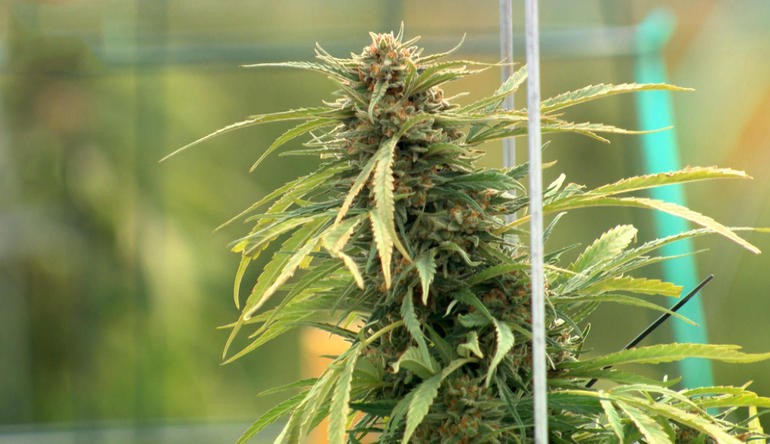At least temporarily, the Shelby County Commission put itself on the wrong side of history last week when it recorded a vote of 4-7 on the first of three readings of an ordinance to partially decriminalize cannabis. While the resulting vote was different from a positive vote from the Memphis City Council on a similar ordinance, the amount of misinformation on display from opponents during the debate was not.

Back in the 1930s, when “reefer madness” began, misinformation about cannabis was easy to spread because there was little research, and the public didn’t have access to information that we have today. Now, there is really no excuse for public officials to make blatantly false statements.
During the council’s debate, Police Director Michael Rallings made demonstrably erroneous statements on everything from driving risks to the much-repeated and much-debunked gateway drug argument to a wildly overstated estimate of how many joints could be rolled out of a half-ounce of marijuana (though, admittedly, the thought of MPD officers sitting around a table rolling doobies is hilarious).
On the issue of driving risks, Mark A. R. Kleiman, an NYU professor specializing in drug and criminal policy issues, said driving while under the influence of cannabis compares to having a noisy child in the back seat, making one perhaps twice as likely to have an accident. As a point of comparison, Kleiman found that using a hands-free cell phone while driving makes one four times more likely to have an accident.
U.S. Attorney General Loretta Lynch has also disputed the gateway drug theory as applied to pot. In arguing for the potentially addictive nature of prescription drugs, which might in her estimation lead on to dangerous opioids such as heroin, she was dismissive of equivalent dangers from marijuana: “It’s not like we’re seeing marijuana as a specific gateway.”
Addressing the issue of marijuana decriminalization, Kim Gerecke, chair of the neuroscience program at Rhodes College, is in agreement with that thesis. As she puts it, “Marijuana has a relatively low addiction rate of about 9 percent. In contrast, the addiction rate of alcohol is 15 percent, and nicotine is around 32 percent. Importantly, addiction rates to opioids, including prescription painkillers, are about 25 percent.”
Pointing out that there has never been evidence of a death directly attributable to a marijuana overdose, Gerecke says, “research has shown overwhelmingly that marijuana has an incredibly low toxicity, especially when compared with the over half a million Americans who die every year due to the toxic effects of alcohol, prescription opioids, and nicotine.”
Gerecke goes so far as to suggest that decriminalization may actually have a deterrent effect on use of dangerous drugs: “It’s important to note here that recent research in Colorado and other states in which cannabis is decriminalized, or even legalized, has shown that use of other illicit drugs has declined.”
In Tennessee, even the amount of marijuana used as a standard to impose legal penalties may be overstated. The state deems that possession of 14 grams is the amount at which a misdemeanor occurs, whereas most states set the limit at a range from an ounce (28 grams) to 30 grams.
During the county commission’s debate, Commissioner Heidi Shafer made the claim that marijuana is extremely carcinogenic. However, in the Harm Reduction Journal, which publishes research focusing on the prevalent patterns of psychoactive drug use and the public policies meant to control them, Robert Melamede, a physician, writes that the cells of the lungs are lined with nicotine receptors but do not appear to contain receptors for THC, which may explain why marijuana use has not, in fact, been linked to lung cancer.
As an indication of just how wildly misleading the local case against decriminalization has been, Chief Inspector Mark Kellerhall of the Sheriff’s Department stated to the commission that a half ounce could have up to a $3,000 street value. Aside from its having no discernible relation to the argument, that misstatement is so ridiculously far from the truth that it should not even have been published as news or allowed to go unchallenged at the commission meeting.
My plea to all public figures, regardless of their viewpoint is: Please just do the research; merely repeating hearsay legends is doing a disservice to the public.
Memphis lawyer John Marek is president of the local branch of NORML (the National Organization for the Reform of Marijuana Laws).